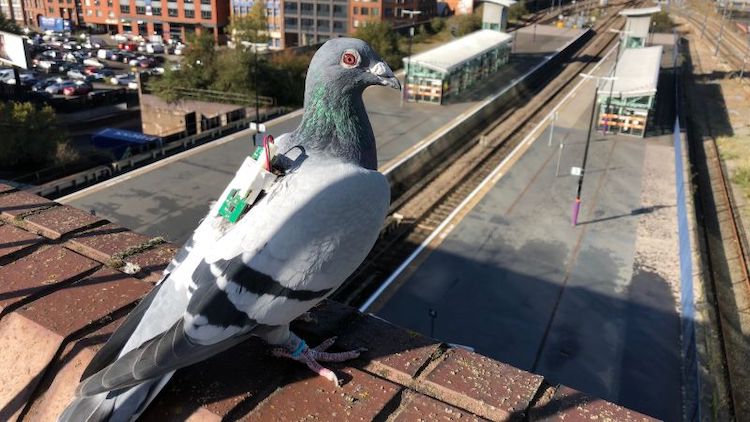But this explanation of how pigeons might use wind-borne odors to find their loft was just a hypothesis: Wallraff still needed to prove that the atmosphere does indeed contain the basis of the map.

Does Game Pigeon Use Data Analysis

Does Game Pigeon Use A Lot Of Data
- Tzafestas, S., Dalamagkidis, K., Piegl, L., Valavanis, K.: On Integrating Unmanned Aircraft Systems into the National Airspace System. ISCA 2009, vol. 36. Springer, Dordrecht (2009). https://doi.org/10.1007/978-1-4020-8672-4CrossRefGoogle Scholar
- Duan, H., Qiao, P.: Pigeon-inspired optimization: a new swarm intelligence optimizer for air robot path planning. Int. J. Intell. Comput. Cybern. 7, 24–37 (2014)MathSciNetCrossRefGoogle Scholar
- Xu, X., Deng, Y.: UAV power component-DC brushless motor design with merging adjacent-disturbances and integrated-dispatching pigeon-inspired optimization. IEEE Trans. Magn. 54, 1–7 (2018)CrossRefGoogle Scholar
- Duan, H., Wang, X.: Echo state networks with orthogonal pigeon-inspired optimization for image restoration. IEEE Trans. Neural Netw. Learn. Syst. 27, 2413–2425 (2016)MathSciNetCrossRefGoogle Scholar
- Zhang, B., Duan, H.: Three-dimensional path planning for uninhabited combat aerial vehicle based on predator-prey pigeon-inspired optimization in dynamic environment. IEEE/ACM Trans. Comput. Biol. Bioinf. 14, 97–107 (2017)CrossRefGoogle Scholar
- Duan, H., Qiu, H., Fan, Y.: Unmanned aerial vehicle close formation cooperative control based on predatory escaping pigeon-inspired optimization. Scientia Sinica Technologica 45, 559–572 (2015)Google Scholar
- Harsanyi, J.: Games with randomly disturbed payoffs: a new rationale for mixed-strategy equilibrium points. Int. J. Game Theory 2, 1–23 (1973)MathSciNetCrossRefGoogle Scholar
- Ungureanu, V.: Sets of Nash equilibria in polymatrix mixed-strategy games. Pareto-Nash-Stackelberg Game and Control Theory. SIST, vol. 89, pp. 57–81. Springer, Cham (2018). https://doi.org/10.1007/978-3-319-75151-1_3CrossRefGoogle Scholar
- Sandholm, W.: Evolutionary game theory. In: Computational Complexity, pp. 1000–1029 (2012)CrossRefGoogle Scholar
- Smith, J.: Evolution and the Theory of Games. Cambridge University Press, Cambridge (1982)CrossRefGoogle Scholar



